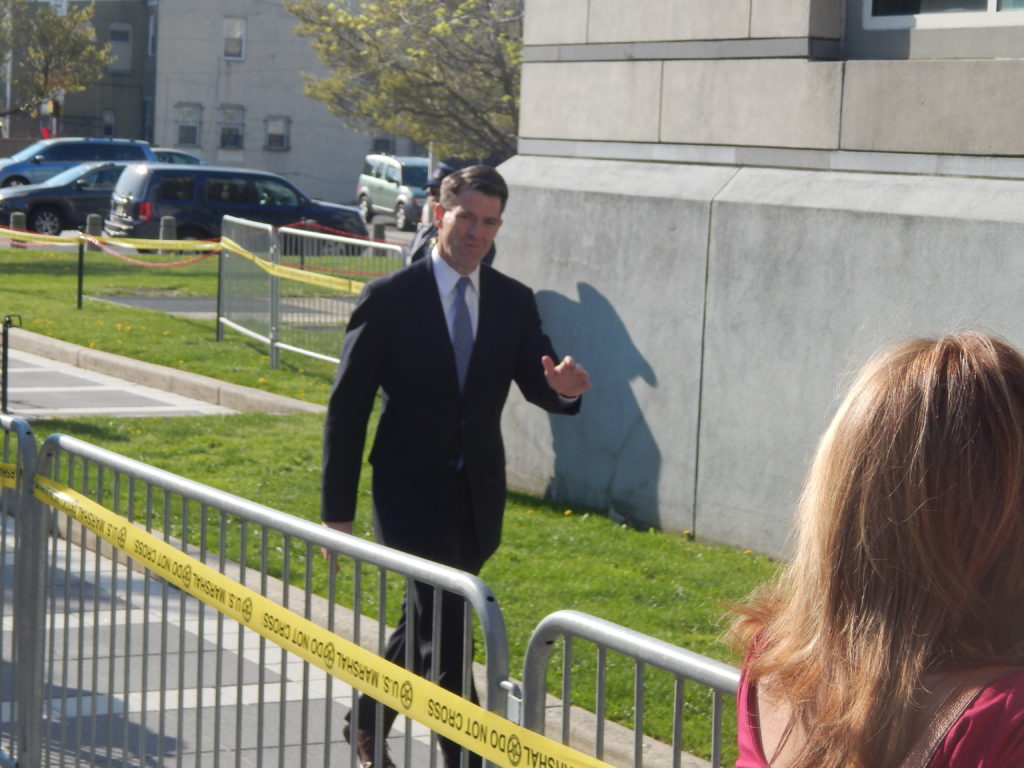The Point on which the Bridgegate Decision Turned

One sentence from Judge Elena Kagan jumped off the page.
Summing up the dishonorable acts by a handful of former state officials, she wrote, “But not every corrupt act by state or local officials is a federal crime.”
There you have it. Dirty politics is not always a crime.
The U.S. Supreme Court’s unanimous decision today throwing out the so-called Bridgegate convictions of Bridget Kelly and Bill Baroni undoubtedly will leave many in the state disenchanted. How can such a
spiteful and malicious act – closing parts of a major thoroughfare because of petty politics – not violate some type of law?
Then again, just about everyone from New Jersey who attended the court’s Jan. 14 hearing on the matter knew where things were going.
Seven justices spoke at the hearing and every one of them was unconvinced the convictions were justified.
Just what did Baroni and Kelly get out of the deal?
That question was raised in January and again today in Kagan’s opinion. She wrote that for a crime to have been committed, defendants Baroni and Kelly would have had to have gotten something tangible out of the scheme – namely money or property.
They got none of the above.
It can be argued that closing two of three access lanes from Fort Lee to the George Washington Bridge was part of Chris Christie’s reelection campaign. And that Christie’s eventual victory in 2013 was payback enough for Baroni and Kelly. They did get to stay in their influential political jobs, at least until their deeds became public. However, both during oral arguments and in today’s opinion, the court
showed little concern for the raw politics of it all.
Kagan even noted that legally speaking, realigning bridge lanes was just fine.
Here’s the logic.
The Port Authority, which runs the bridge, is beholden to officials in both New Jersey and New York. So New Jersey officials – defendants Baroni and Kelly – had the right to “alter a regulatory decision” about lane alignment. In the next breath Kagan admitted that decision was based on politics and “lies.” That would be the deceptive – and thoroughly unconvincing argument – that the lane alteration was about a “traffic study.”
In another part of the opinion, she called the act, an “abuse of power.”
But then Kagan gets back to the premise that Kelly and Baroni netted nothing of value for their misdeeds. And that’s where the case turned.
Nothing about this episode was all that funny, but Kagan couldn’t resist some light-hearted humor and sarcasm. She noted that the defendants’ scheme went “merrily” along for four-plus days.
As for Kelly’s now infamous email, “Time for some traffic problems in Fort Lee,” Kagan observed that the message was “admirably concise.”
Christie was in the courtroom when the case was heard, but apparently escaped out of a side door to avoid reporters.
He had more to say today. Christie called the Bridgegate prosecution a “political crusade” by former U.S. Attorney Paul Fishman and the Obama Justice Department.
Christie said Fishman “invented” a federal crime because of “political partisanship,” “blind ambition” and a desire to hurt his administration. This is typical Christie rhetoric, but it also must be understood that the court’s opinion was based on the law and precedent. The court did not excuse the act of doling out political punishment by manipulating traffic patterns.
In fact, Kagan said federal law leaves corruption of this type to the “states (or their electorates) to rectify.”
The “electorate” in New Jersey could not “rectify” this mess, because it surfaced after Christie had been elected to his second and final term.
However, the nationwide “electorate” was a different story. Christie’s presidential, and perhaps even vice presidential ambitions, were never realized.
Bridgegate had a lot to do with that, proving that in the outside world, there is a price to pay for dirty politics.
Amen to that.








These politicians and Christie specifically are a disgrace. Morally and ethically… but who cares in the era of Trump? Everybody knows exactly what happened and why but the legal system doesn’t seem to care… and Christie goes on to a lucrative TV contract and the “convicts” go one to “want their lives back” which have already been disgraced to score a few political points.
Ron Ziegler just tweeted:”See.I told you that it was a third rate traffic jam.”